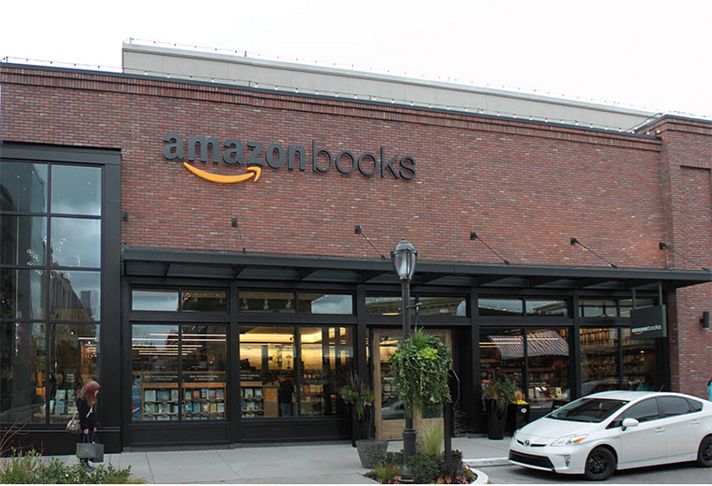Why E-commerce Will Never (Totally) Replace Brick-n-Mortar Retail
With the continuing expansion of online retail, some retail real estate owners may worry that e-commerce will eventually replace physical shopping centers. But brick-and-mortar retail isn’t going away, according to San Diego-based Capstone Advisors president Alex Zikakis, who tells us online retailers are opening physical storefronts.

That's Alex with his son, Max, at an Arsenal Football Club game at Emirates Stadium in London.
Amazon, the largest and most well-known online retailer, launched its first store in November in Seattle. It's rumored the online retail giant plans to open up to 400 stores nationally. “Here’s the guys who killed more bookstores than anyone, now opening a chain of stores,” Alex says.
Additionally, Amazon began opening campus stores at the University of Massachusetts at Amherst, Purdue University, UC Berkeley, UC Santa Barbara and the University of Cincinnati.
Alex tells us other retailers launched online have moved into physical locations, such as Athleta (above), which sells women’s fitness and sportswear; Warby Parker, an eyewear brand that sells inexpensive designer eyeglasses; and Bonobos (NYC Fifth Avenue shop below), a men’s clothing retailer.
There are a number of reasons online retailers are opening physical shops and why brick-and-mortar retail won’t ever disappear, he contends. “The shopping experience is important. People want to touch or feel stuff—the texture of fabric when buying clothing,” Alex adds, pointing out the physical act of shopping involves lots of social interaction and enjoyment.

“I don’t think retail will ever completely transition to e-commerce,” he continues, “because you can’t get a haircut online, or enjoy a dining experience or entertainment that involves physical activity or social interaction.”
Noting that Capstone Advisors is a retail real estate investor, Alex says, “As a retail landlord, it’s important to look at your tenant mix from the standpoint of who will survive in a digital world, and who will be made redundant. We look for tenants who won’t be replaced by the Internet.” Alex says electronics retailers have been the “poster child” for displaced retailers, yet Best Buy is actually making a comeback by reorganizing its business strategy.

As online retailers open physical stores (such as Warby Parker's New York flagship store, above) and traditional retailers expand their e-commerce business, it’s apparent that corporate retailers realize the value of both retail channels, Alex says. Retailers must apply a fully integrated strategy to be successful, he points out, since the Internet is how consumers gather information and form opinions about products, regardless of where they shop.
“When buying a home or car, people do research online before touring homes or walking into a dealership,” he says.


